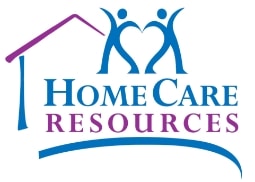
Taking care of an elderly loved one suffering from Alzheimer’s disease presents a variety of challenges, particularly with regard to controlling restlessness. Seniors diagnosed with the disease frequently become restless for various reasons, such as disorientation, nervousness, and environmental disturbances. However, it is possible to help reduce restlessness and enhance their general quality of life with the appropriate strategy and support from Alzheimer’s home care.
Understanding Why Seniors with Alzheimer’s Get Restless
Seniors with Alzheimer’s who are restless may exhibit a variety of behaviors, including agitation, fidgeting, pacing, and trouble falling asleep. It is frequently a reaction to the disease’s ability to confuse and disorient them, as well as their incapacity to properly express their needs.
For everyone involved, this can be quite upsetting. Unfortunately, becoming upset on the seniors’ side of things only increases the issue.
Techniques for Family Members to Consider
Every situation and senior is unique. However, there are a few common techniques that loved ones can use to help seniors reduce their restlessness, including the following:
Creating a Pattern and Sense of Repetition
Establishing a regular daily schedule can help provide structure and predictability, which can reduce restlessness and anxiety. For instance, as part of Alzheimer’s home care, loved ones should make sure regular routines like eating, exercising, and sleeping take place at the same times every day.
Establishing a Calm Environment
A calm environment can go a long way. Loved ones can do this by reducing background noise, mess, and distractions. They can also offer comfort items, play relaxing music, and use soft lighting in the home to create a relaxing environment that encourages calm.
Encouraging Physical Activity
Regular exercise can help lessen restlessness by releasing stored energy and fostering improved sleep patterns. Loved ones can encourage seniors to engage in stretching, walking, or mild exercises each day to help with this.
Participating in Meaningful Activities
Simply providing mental stimulation isn’t always enough. Instead, loved ones and the home care team can provide activities for seniors that give them a sense of accomplishment and purpose.
Keep Communications Simple
As part of Alzheimer’s home care, it’s important to have effective communication. However, this can be a struggle for seniors. With this in mind, loved ones should focus on simple communication while offering empathy and understanding. Additionally, using comforting gestures and tones can help soothe seniors when they’re feeling confused or distressed.
Pay Attention to Side Effects
Medication is a vital part of Alzheimer’s home care. Still, it’s important to monitor seniors for reactions that may be increasing their feelings of restlessness. Also, if concerns are noted, loved ones should talk with the medical team about them.
Seniors with Alzheimer’s disease can become less restless with a well-rounded strategy that includes recognizing their needs, creating a supportive atmosphere, and engaging them in meaningful activities. Despite the difficulties the illness presents, it is possible to create a serene and cozy environment that improves their quality of life with Alzheimer’s home care in place and the assistance of family members.
If you or an aging loved one are considering Alzheimer’s Home Care in Tempe, AZ, please contact the caring staff at Home Care Resources today. Call (602) 443-4700
Home Care Resources is a top provider of home care services in Phoenix, Tempe, Scottsdale, Glendale, Paradise Valley, Peoria, Sun City, Sun City West, Surprise, Goodyear, Cave Creek, Care Free, Fountain Hills, and surrounding areas.
Sources:
- https://www.alzheimers.org.uk/about-dementia/symptoms-and-diagnosis/symptoms/restlessness
- https://www.webmd.com/alzheimers/treating-agitation
- https://www.webmd.com/alzheimers/alzheimers-anxiety
- Six Warning Signs of Diabetes to Watch for in Seniors with Dementia - May 19, 2025
- Understanding Chronic Conditions in Seniors: The Importance of Support - May 9, 2025
- Helping Your Elderly Loved One Maintain Healthy Vision - April 24, 2025




